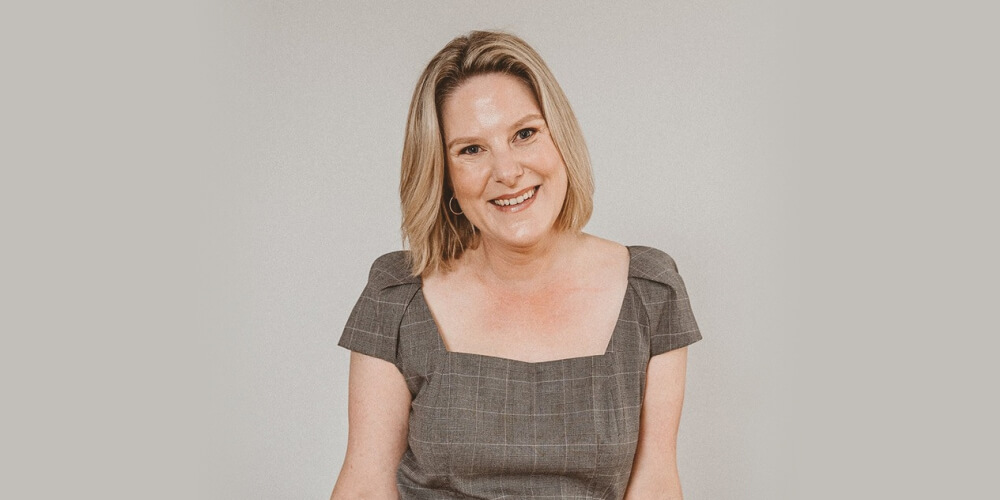Emily Rogers is the founder of The Leap to Lead and a distinguished transition and leadership coach, dedicated to helping individuals and organizations achieve their full potential. With a successful career in Human Resources spanning senior roles in large organizations across diverse industries—including FMCG, professional services, government, and manufacturing—Emily Rogers expertise is both extensive and varied. Her career took a different path when her husband’s job relocation to Asia required her to adapt to new environments. Initially, in Hong Kong, Emily Rogers was able to continue her HR career as a dependent. However, as the family moved to India, China, and eventually Taiwan, language and legal barriers made it challenging to pursue her HR profession. During this time, Emily channeled her efforts into volunteering, running networking organizations, supporting NGOs, and engaging with her daughters’ schools.
After eight years of volunteering and supporting her community, Emily Rogers decided to pivot and start her own business. Despite ongoing language barriers, she launched her business within six months of completing a relevant course. The Leap to Lead has since provided Emily with the opportunity to serve clients globally, collaborate with a diverse network, and make a significant impact in the fields of transition and leadership coaching.
Emily Rogers takes great pride in the accomplishments of her business, particularly in helping clients navigate transitions, develop leadership skills, and enhance their organizational impact. She finds immense fulfillment in guiding individuals through deeper conversations, coaching teams, and witnessing the positive changes they bring to their organizations.
Below are highlights of the interview:
Tell us about The Leap to Lead and its mission.
Drawing from my diverse background in human resources, business, and personal development, I use a holistic approach to coaching that addresses both the practical and emotional aspects of change. My empathetic nature and ability to create a safe and supportive environment allow clients to explore their goals, fears, and aspirations with confidence. My mission is to enable my clients to navigate change with confidence.
What strategies do you employ to ensure that The Leap to Lead remains competitive in the market?
The only constant in life is change! As a solopreneur, I have to always be thinking ahead, considering trends and shifts. I make the time to learn from experts in various fields; through reading their books or listening to their podcasts, I make sure I’m always being exposed to new ideas or thinking. I also make it a priority to attend a webinar or online training each week.
In addition to this, building time into each day and week for reflection is key to staying agile. If we keep doing’stuff’ every day without giving ourselves the time and energy space to reflect, it means we get stuck in the’stuff’. We need the time and energy space to reflect, reflect on the bigger picture and how that may or may not be shifting. When you create this space, that’s when you can see changes, and you can adapt and adjust as necessary. If we’re always busy, then we’re not agile.
How do you foster a culture of innovation and adaptability within your organization, considering the rapidly changing landscape of the business industry?
Being globally minded, adaptable, and able to connect with people of different backgrounds is going to be more and more important to foster innovation and adaptability. Not only with migration, but with more people working remotely and across borders, teams are becoming more diverse.
It comes down to how you connect and communicate. If you are able to provide a vision that people understand and break it down into the steps individuals are accountable for, you and your team are capable of amazing things!
How do you prioritize customer satisfaction and ensure that the company provides exceptional service to its clients?
The support provided by The Leap To Lead is adapted for each client, ensuring that the specific needs of their organization and industry are considered.
Transition is complex, and there is no one size fits all. Managing client relationships to understand their priorities and needs leads to a high level of customer satisfaction and a positive ongoing relationship.
What steps do you take to attract and retain top talent in the industry, and how do you encourage professional growth and development within your organization?
As a solopreneur, I don’t have a dedicated team working with me. However, on a daily basis I am working with other people, from clients to collaborators. This, in many ways, is more challenging as I am having to inspire and motivate people who don’t report to me.
When I need to bring others with me on a project or a piece of work, I find the power really lies in clarity. For me, that starts with knowing exactly what I need and how I would like it delivered. I have found this so important, especially when working with people where English isn’t their first language.
Once I know what it is that I need, I focus on motivating others with clear communication. When sharing my ideas, I outline not only my vision and expectations, but what that means in a tangible sense to them. I always take the time to explore how that might look for them, what it will take for them to be able to deliver.
When having to work using influence and setting expectations, I have found using clarity to inspire and motivate is the only way to ensure a project is delivered.
As Founder of The Leap to Lead, what is your overall vision for the company’s future, and how do you plan to achieve it?
I have recently started developing the concept of transition intelligence (TQ), and I am excited to see this become a benchmark for organizations across industries to determine if their transition support is appropriate and meeting the needs of their people.
Transition intelligence is more than just a process; it’s a mindset. It’s about equipping teams with the knowledge and skills they need to navigate the challenges of relocating to a new country. It’s about understanding that the success of an international assignment hinges not just on logistical support, but on emotional and cultural integration as well.
This concept is rooted in the belief that when we support the human side of global transitions, we pave the way for more successful assignments and a more engaged, productive workforce.
As organizations continue to expand their global footprint, the need for effective international assignments becomes increasingly crucial. While companies invest significant resources in ensuring a smooth transition for their employees, one critical aspect is often overlooked—the wellbeing of the assignee’s partner and family. This is where Transition Intelligence (TQ) comes in.
What advice would you give to aspiring leaders or individuals looking to join the industry?
Don’t allow your fears to stop you, you have a unique offering, and there are people out there who need what you’re doing. Just focus on the next right step, what is the next right thing for you to do? Make that happen, and keep going.
Please visit: https://www.theleaptolead.com/





